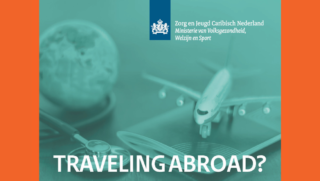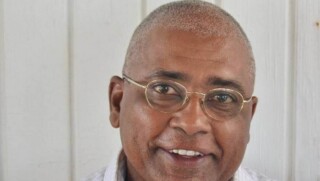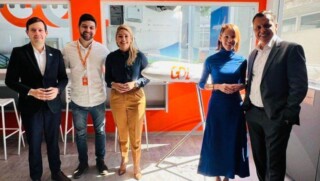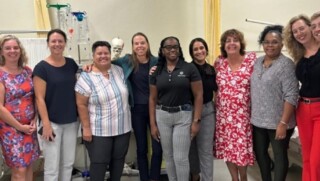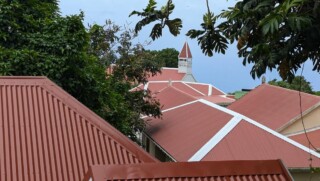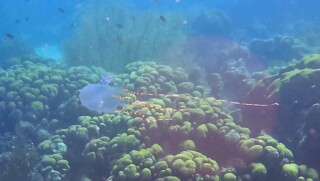World’s First Passenger Flight with Sustainable Synthetic Kerosene

Amsterdam – In the Netherlands, for the first time in the world, a passenger flight has been carried out in which the aircraft has flown partly on sustainably produced synthetic kerosene. This was announced today at an international conference on sustainable synthetic aviation fuels (SAF) in The Hague. Shell, which produced the sustainable kerosene and KLM which carried out the flight, explained the world first at the meeting held at the initiative of Minister Van Nieuwenhuizen (Infrastructure and Water Management) in which European politicians, policy makers, representatives from the business and (aviation) industry and civil society organisations participated.
In Europe, the Netherlands is one of the leading group of countries that want to drive the development and application of sustainable aviation fuels in order to make aviation more sustainable. The Netherlands wants to stimulate the development and application of sustainable aviation fuels (biofuels and synthetic kerosene) so that sustainable fuel can be flown in Europe by 2050. The government supports various initiatives to get production and use going, and to scale up and thereby make it commercially interesting. An example is the construction of the first European plant for sustainable biokerrosene in Delfzijl for which SkyNRG cooperates with KLM, Schiphol and SHV Energy.
500 litres delivered, refuelled and used
At the conference, it was announced that KLM’s first commercial flight was made at the end of last month with the blending of 500 litres of durable synthetic kerosene. It was a passenger flight from Schiphol to Madrid. Shell produced the synthetic kerosene at its research centre in Amsterdam on this scale based on CO2, water and renewable energy from sun and wind from Dutch soil.
Minister Van Nieuwenhuizen: “Making aviation more sustainable is an international challenge that we face together. Today, with this world first, we are taking a beautiful step into the new chapter of our aviation. This promising innovation will be of great importance in the coming decades to reduce CO2 emissions from aviation. It is great that we have shown in the Netherlands that this is possible: a great compliment for everyone involved. I hope that, in this turbulent time for aviation, this inspires people in the sector to continue on this course.”
Pieter Elbers, President and Ceo of KLM: “I am proud that KLM has carried out the first passenger flight worldwide with the addition of synthetic kerosene, produced from CO2, water and renewable energy. The transition from fossil fuels to sustainable alternatives is one of the biggest challenges in aviation. Fleet renewal has contributed significantly to the reduction of CO2 emissions, but the scaling up of production and the use of sustainable fuel will make the biggest difference to the current generation of aircraft. That is why we have been working with various partners for a long time to stimulate the development of sustainable synthetic kerosene. This first flight of synthetic kerosene shows that it is possible in practice and we can move forward.”
Chief executive of Shell Nederland Marjan van Loon: “Shell is an active player in the energy transition and our contribution to this world first is an example of this. I am extremely proud that we have managed to produce 500 litres of jet fuel for the first time on the basis of CO2, water and renewable energy. It is an important first step and together with our partners we now need to scale up, accelerate and make it commercially viable.”
Startups
During the conference, the stage was given for various new initiatives and startups. For example, the startup Synkero announced that port of Amsterdam, Schiphol, KLM and SkyNRG are working on the realization of a commercial synthetic sustainable kerosene factory in the Port of Amsterdam. The project seeks to connect with sustainable initiatives in the North Sea canal area, such as the establishment of a 100 megawatt hydrogen plant capable of producing up to 15,000 tonnes of green hydrogen with renewable electricity.
Another initiative is the construction of a demonstration factory for sustainable kerosene with captured CO2 from the air as a raw material in
Rotterdam. The Zenid initiative, in which Uniper, Rotterdam The Hague Airport, Climeworks, SkyNRG and Rotterdam The Hague Innovation Airport are participating, uses a combination of innovative technologies to develop a CO2-neutral aviation with sustainable synthetic kerosene.
Several European politicians, including Commissioner Timmermans, German Transport Minister Scheuer and his French counterpart Djebbari, stressed at the conference the importance of developing sustainably produced aviation fuels to reduce CO2 emissions and give aviation a good
future.
Several European Member States have indicated at the conference that they want to work on this. In a joint statement, the Netherlands, France, Sweden, Germany, Finland, Luxembourg and Spain said that restoring the current crisis due to the corona pandemic must go hand in hand with accelerating the sustainability of the aviation sector in order to meet climate targets and called on the European Commission to come up with a European blending obligation. Member States see the development of sustainable synthetic kerosene alongside sustainable biokerrosene as one of the most promising and effective ways to reduce aviation emissions in the coming decades.


